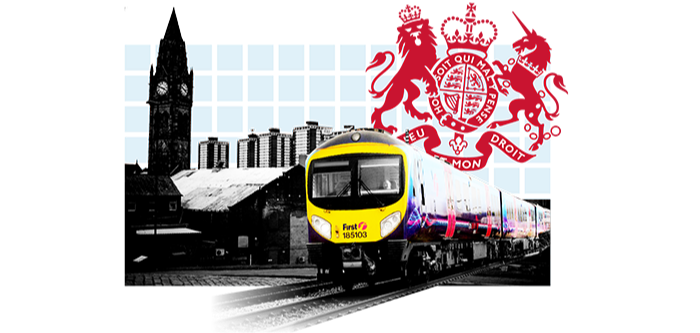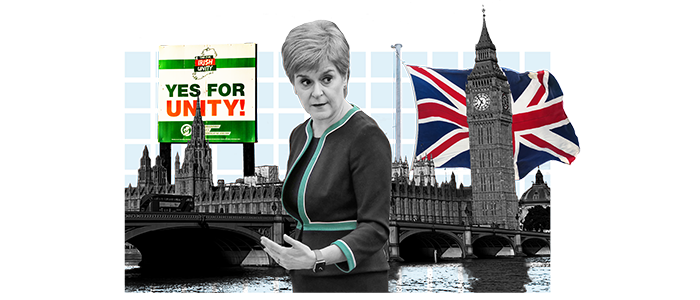In only a few weeks, Conservative party members will decide the next UK prime minister after Boris Johnson announced last month he would step down following a wave of resignations by members of his government that demolished his political authority.
The two leadership contenders — Liz Truss, foreign secretary and current frontrunner, and Rishi Sunak, former chancellor — have outlined their respective visions for the country during a series of televised debates and hustings.
During the campaign so far, the candidates have clashed on issues such as tax cuts and support to help Britons through the cost of living crisis. With inflation at a 40-year high and rising, household energy bills forecast to surge to £4,427 in April, and further public sector strikes on the horizon, Johnson’s successor will face daunting decisions when he or she is announced on September 5.
Below the Financial Times has provided a rundown of where each candidate stands on eight key UK policy areas.
Economy
truss
Pledged to boost economic growth by introducing tax cuts equivalent to more than £30bn a year. Claims Sunak’s policies would plunge Britain into recession. She would reverse his increase in corporation tax and introduce a one-year moratorium on the green energy levy to address the cost of living crisis. Wants to review the Bank of England’s mandate to make sure it is “tough enough on inflation”.
sunak
Promised to “return to traditional Conservative economic values” and denounced Truss’s “fairytale economics”. Will lower taxes once the UK has got to grips with inflation and cut the basic rate of income tax to 19 per cent by 2024. Wants to remove VAT on domestic energy bills for the next year. Warned scrapping the central bank’s independence on rate-setting would be a “mistake”.
Brexit
Truss
Architect of the Northern Ireland protocol bill, which would override part of Johnson’s Brexit deal governing trade in the region. Promised a “bonfire” of EU red tape and vowed to scrap all EU-derived legislation by the end of 2023, if it is found to hinder the UK’s economic growth.
Sunak
Raised concerns in cabinet about the economic impact of a row with Brussels over Northern Ireland’s post-Brexit trade arrangements. Promised to create a new Brexit delivery department to review the existing EU legislation on UK statute books.
Education
truss
Pledged to reform the sector, including a “new wave” of free schools to replace failing academies and to shake up the Oxbridge admissions system, by ensuring all triple A* students are automatically given an opportunity to apply to either Oxford or Cambridge university.
sunak
Vowed to clamp down on university degrees that “saddle students with debt” but fail to improve their earning potential. Promised to introduce a “British Baccalaureate” that would require secondary school students to study maths and English until aged 18.


Levelling up
truss
Promised to “level up the country in the Conservative way” by promoting regional growth through low tax, low regulation “investment zones” and the creation of more directly elected mayors. Has committed to building Northern Powerhouse Rail, a £43bn line connecting Hull and Liverpool.
sunak
Pledged to continue Johnson’s agenda on tackling UK regional inequality, including through the creation of more directly elected mayors. Would have a cabinet minister for levelling up and ensure the Treasury approves infrastructure projects outside southern England.
Immigration
Truss
Will clamp down on “appalling” gangs who illegally traffic people across the Channel, increase staffing numbers of the Border Force by 20 per cent and appoint a Home Office minister to oversee the force. Truss has promised to pursue more third-country migration partnerships such as the Rwanda scheme.
Sunak
The former chancellor has outlined a 10-point plan aimed at securing Britain’s borders. This includes calling on parliament to set an annual cap on the number of refugees coming into the UK each year and creating a cross-government “small boats task force” to take control of Channel migrant crossings.
Net zero
Truss
Promised to keep the net zero target but has criticised the goal, saying she wants to find “better ways to deliver net zero” that does not “harm people and businesses”. Is in favour of fracking where there is local support for it and criticised the use of solar panels on agricultural land.
sunak
Committed to the net zero carbon emissions by 2050 target. Wants to establish an energy security task force, deregulate to boost North Sea gas production and scale up renewable energy sources such as offshore wind and nuclear power. Also backs fracking in areas where there is support.


Union
Truss
Has described herself as a “child of the union” and referred to Scottish first minister Nicola Sturgeon as an “attention seeker”. Wants to give MSPs parliamentary privilege, which would give them legal immunity from prosecution over statements made in parliament.
Sunak
Pledged to do “anything and everything” to preserve the union, and would expect UK ministers to be more visible in Scotland, and wants Holyrood to publish regular data on its performance.
NHS
truss
Will reverse the national insurance rise, designed to fund social care and ease the NHS backlog. But has also said she would prioritise funding for social care. Wants to review NHS pensions and to support doctors and nurses by “removing some of the central diktats” and having fewer layers of management in the health service.
sunak
Promised to establish a vaccine-style task force to cut bureaucracy. Proposed £10 fines for patients who miss GP and hospital appointments. Pledged to create 200 diagnostics hubs by March 2024 to ease treatment backlogs. Is expected to stick with national insurance rise, which he introduced as chancellor.
Credit: Source link















